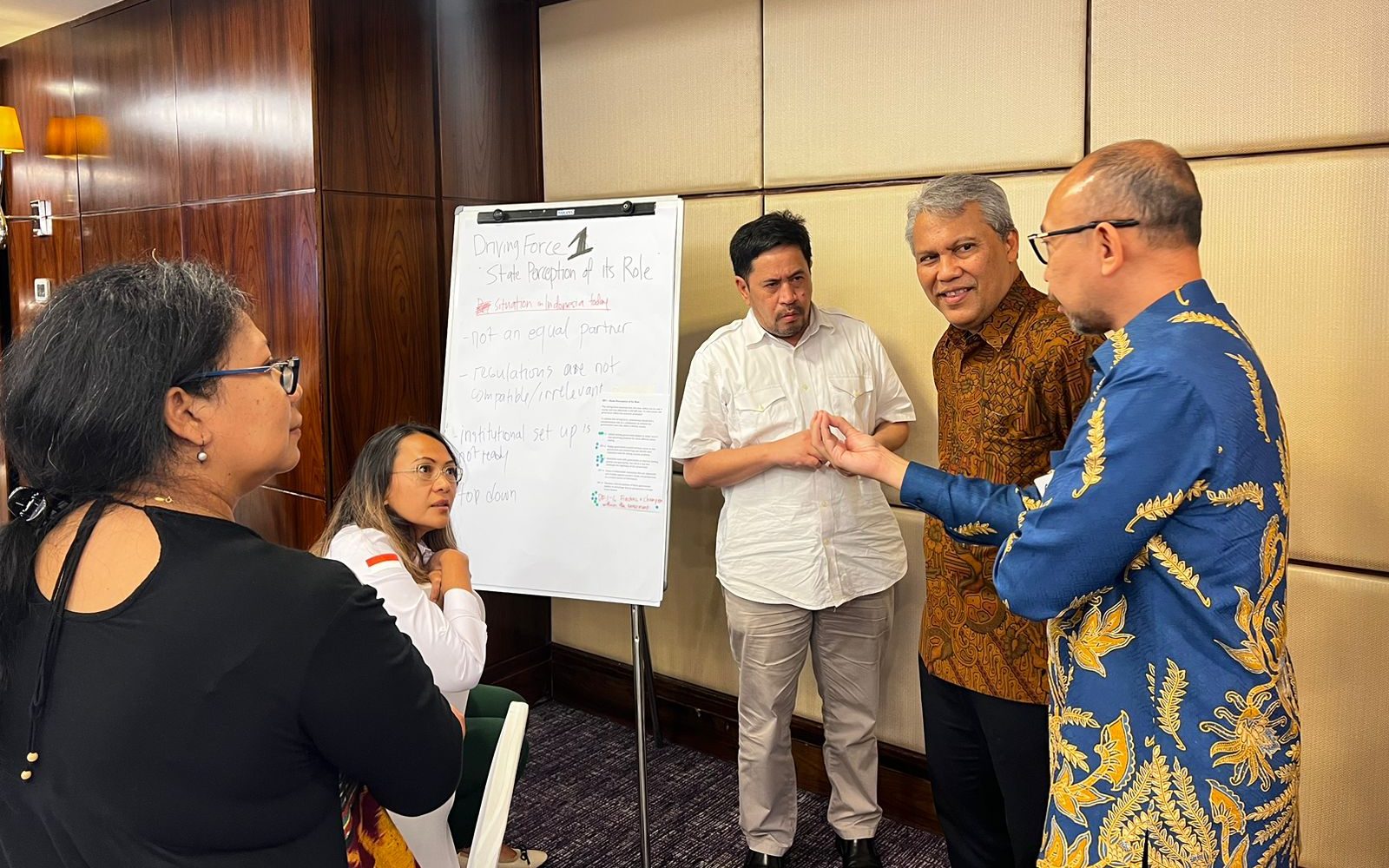BY STACEY CHOE, CHIEF OPERATING OFFICER, ASIA PHILANTHROPY CIRCLE

In February 2023, APC convened a group of leading philanthropists, civil society leaders, and representatives from think-tanks and foundations in Jakarta to ponder such a question.
Using our recent research publication, the Future of Asian Philanthropy, as a framework for discussion, the audience set about on a guided journey towards deciphering how the key drivers of state control, social inequality, and civil society cooperation will influence society, and what we should look into now to lead the country towards its best possible outcomes.
It was an afternoon of deep, meaningful discussions with very frank insights. Former Finance Minister Chatib Basri kicked thing off with his thoughts on the current key issues on rising inequality, tensions between market and state, and the rise of the informal sector with their unique problems. These divisions also heighten other areas of concern—such as digital access and a widening gender gap. In this new era of global uncertainty, where we face multiple crises concurrently, the situation seems grim; however, the hopeful aspect is that Indonesian society has proven itself to be resilient and adaptable.
There were continued positive sentiments in the room. Participants exalted Indonesia’s spirit of gotong royong—helping each other out, but also lamented that collaboration is currently insufficient and not deep enough to be truly impactful. One group questioned the privilege and role of wealth in a society with rising inequality—an existential reflection that definitely requires deeper contemplation, and one that is not unique to the Indonesian context.
When it came to practical recommendations, participants called for better policies to foster more philanthropy, and to focus on areas like early childhood development, which APC members are already working together on. They agreed that government and philanthropy should work better together, in a more trusted tripartite model with evidence-based research. Philanthropists and other stakeholders should also have a regular platform for exchange to have more effective collaboration across different areas of common interest.
As the fourth most populous nation in the world, there is so much for potential for Indonesia to do more for itself and to solve its problems. There is no lack of natural resources, but having such resources requires better governance, and more people with courage to step up to improve ineffective systems, and more coordination between and amongst all sectors to work together towards creating this better future.
In the post-workshop dinner, much needed inspiration came from Iwan Syahril, Director-General from the Ministry of Education. Although he presented once again a rather depressing situation at the beginning—that 1 out of 2 students in Indonesia does not possess minimum literacy competency, he also shared interventions that could effectively address this, such as improving access to good books and teacher training. Members were certainly stoked to help!
Based on the quips and exclamations from everyone in the room, the future of philanthropy in Indonesia does seem to hold an important place in the country: to help steward in some areas, should they go off-course during crises; to support innovation and foster better cooperation when everyone is stuck in entrenched and ineffective ways; and also, to remind everyone that humanity is about helping each other. Gotong royong, especially during the worst of times.
APC is looking forward to more of such invigorating discussions—next stop: Singapore!
